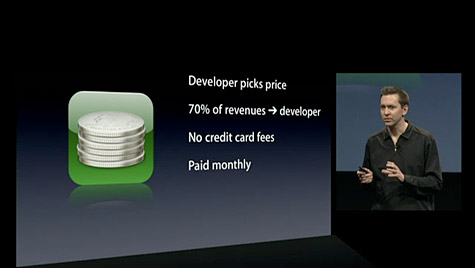App Store bans direct sales and outside content, is Kindle next? (updated)

Apple is clamping down on apps that sell content outside of its walled garden and has made a two major moves to restrict apps from making revenue without cutting Apple in.
According to the New York Times, Apple has told some developers (including Sony) that they can no longer sell content (like ebooks) inside their apps if they don't use Apple's in-app purchases. Apple recently rejected the Sony iPhone app because it would have have let users buy ebooks from the Sony Reader Store.
Translation: you can't sell stuff in-app without giving Apple a 30 percent commission. Period.
Even more troubling is the news that Apple is telling app developers that providing access to content purchased outside the App Store is also a no-no.
This is a dramatic change of policies for Apple that could have huge implications on other contents that provide access to "outside content." Amazon's Kindle app, for instance, gives users access to books purchased outside of the Apple ecosystem.
Apple is shoring up its revenue/billing policies just one day before News Corp's press conference to announce The Daily, a new iPad app that will reportedly use a new recurring subscription billing model and cost $0.99 per week.
Photo: iLounge
Do you use any iPhone apps that use "outside content?"
Update: Apple’s App Store Review Guidelines state:
- 11.2Apps utilizing a system other than the In App Purchase API (IAP) to purchase content, functionality, or services in an app will be rejected
- 11.3Apps using IAP to purchase physical goods or goods and services used outside of the application will be rejected
Apple's Trudy Muller tells All Things D's John Paczkowski:
We have not changed our developer terms or guidelines. We are now requiring that if an app offers customers the ability to purchase books outside of the app, that the same option is also available to customers from within the app with in-app purchase.
So it appears that Apple is just enforcing its old rules. I still find Muller's choice of words peculiar when she says "We are now requiring..." Why didn't she say "We have always required..." instead?
